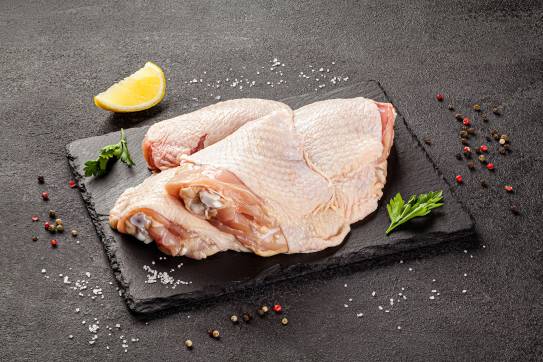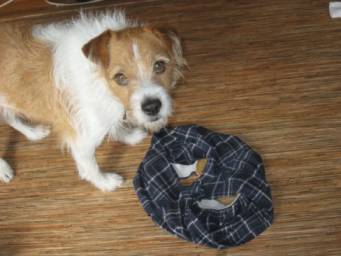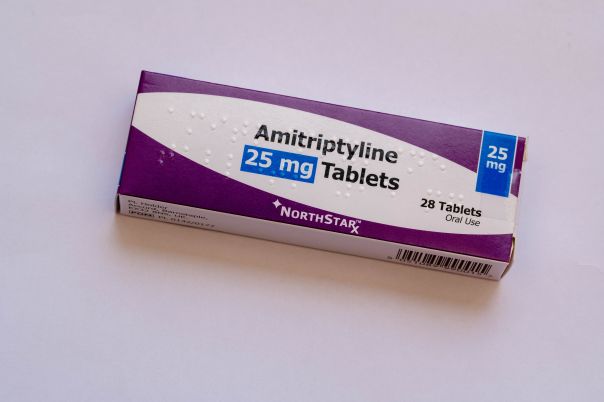Dogs often eat things they shouldn’t, which is called dietary indiscretion (also known as garbage gut). Eating what they shouldn’t is a common habit in dogs, which can lead to serious health issues such as laundry detergent poisoning.
Connect with a verified veterinarian in minutes. Licensed vets are available 24/7 to answer your questions. No need to worry about your furry family member.
Laundry Detergent Poisoning in Dogs
Most of us have laundry detergent in our homes. We need it to keep our clothes, bedding and towels clean. If your fur baby chooses to ingest laundry detergent, it can cause some serious health issues.
This used to be a somewhat rare health issue. These days, however, soap “pods” have caused an increase in the problem over the last few years. Experts speculate that the pods resemble toys, and this attracts the dog. If the dog pierces the outer membrane of the pod, he may easily swallow the detergent inside.
No matter if the laundry detergent is in a pod, liquid or powder form, it can still be poisonous to your dog. This is due to the ingredients in the soap. Detergents can contain ingredients that irritate and cause a dog to vomit, have diarrhea, or suffer from chemical burns in the mouth and esophagus.
Another issue is that detergent, when it meets liquid, becomes foamy. This can happen when a detergent meets the liquid in your dog’s digestive tract. If your fur baby develops foam after ingesting detergent, and then vomits, the foam can be inhaled into the lungs. If this happens, the soap covers the airways, and doesn’t allow oxygen exchange, which can cause your canine companion to suffocate.
Poisoning occurs if the dog eats a small or large quantity of the detergent. It can also cause problems with his nose, eyes, skin, paws, and the digestive tract.
Several Types of Laundry Detergent Dogs Can Eat
Today, there are many kinds of laundry detergent available, including:
- Soaps: for laundry and bathing
- Anionic detergent: these include detergents that contain sodium Lauryl sulfate and sodium n-dodecyl benzene sulphonate. These detergents include dish soap, dishwashing detergents, and shampoos.
- Cationic detergent: carry a positive charge when dissolved in water; they’re usually made from weak alkalis and strong acids. These ingredients are found in disinfectants, fabric softeners, sanitizing agents.
- Nonionic detergent: are synthetic detergents that produce electrically neutral colloidal particles in solution. These detergents can be found in shampoos, dishwashing detergents, and laundry detergents.
Symptoms of Laundry Detergent Poisoning in Dogs
This is not an exhaustive list, but your fur baby could show any of the signs below after ingesting detergent:
- Vomiting
- Diarrhea
- Gastrointestinal lesions
- Lack of appetite
- Swollen abdomen
- Burns/lesions in mouth (also around eyes, nose, outside his mouth)
- Excessive drooling
- Disorientation
- Muscle weakness/seizures
- Collapse
- Hair loss
- Coughing
- Difficulty breathing
- Inflammation of lung tissue

Review symptoms, medications & behavior to keep your pets healthy with a Vet Online in just minutes.
Ask a Vet Live NowWhat to Do if Your Dog Ate Detergent
Never induce vomiting, unless your vet instructs you to do so. This could cause additional problems in your pup.
The first thing to do is call the vet immediately. If your fur baby only had a small amount of detergent and he’s not vomiting, the vet may advise you to give your dog some water or milk. This works to dilute the detergent. Your fur baby should be OK, but vet may advise you to continue to watch for any symptoms and ask you to call if there’s a problem.
Any of these detergents can cause poisoning in dogs. The amount can vary from a small to a large amount. In addition, detergents can cause damage to a dog’s eyes, mucus membranes, paws, skin, and fur.
Your vet may ask you to flush your dog’s eyes with water for twenty minutes with running water. You can also use this method to flush a dog’s mouth and skin. The vet will definitely want to see your dog right away.
Diagnosis of Detergent Poisoning in Dogs
On the other hand, if your dog has ingested a large amount of detergent, the vet will need to see your dog right away. The vet may do a urinalysis and bloodwork.
Treatment will depend on your dog’s symptoms and the amount of detergent he ingested. The vet will decide on the right treatment method with all the information gained from you, your dog’s symptoms, and the test results.
There’s no antidote, so treatment will be supportive, and your canine companion may need to stay in the hospital for a time.
Treatment may include IV liquids such as medications. IV fluids not only help keep your dog hydrated, but they also work to flush toxins out of his system. Medications may include gastroprotectants and antibiotics, as the detergent can be corrosive in your fur baby’s digestive tract.
It is possible that your dog will need to be hospitalized; the length of time needed in the hospital depends on the severity of his symptoms and whether he requires respiratory assistance or a tube inserted into his stomach (to eat—the detergent may have burned his mouth and esophagus).
The prognosis is very good if your fur baby receives fast, early treatment after eating detergent.
Connect with a verified veterinarian in minutes. Licensed vets are available 24/7 to answer your questions. No need to worry about your furry family member.

Tom
Tom has always loved to write since he was little - he wanted to be either a writer or a veterinary doctor, but he ended up being a professional writer while most of his works are based on animals. He was born in San Francisco but later moved to Texas to continue his job as a writer. He graduated from the University of San Francisco where he studied biotechnology. He is happily married and a soon to be father!
Review symptoms, medications & behavior to keep your pets healthy with a Vet Online in just minutes.
Ask a Vet Live Now




